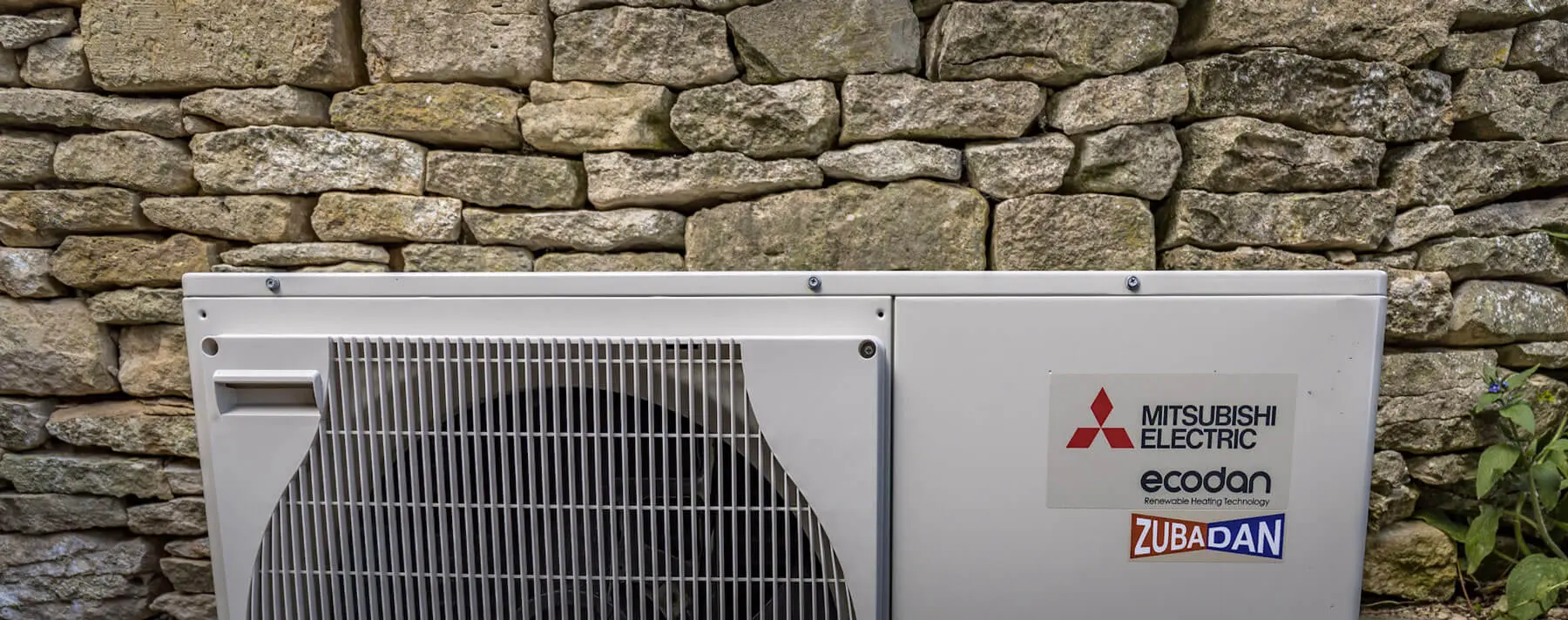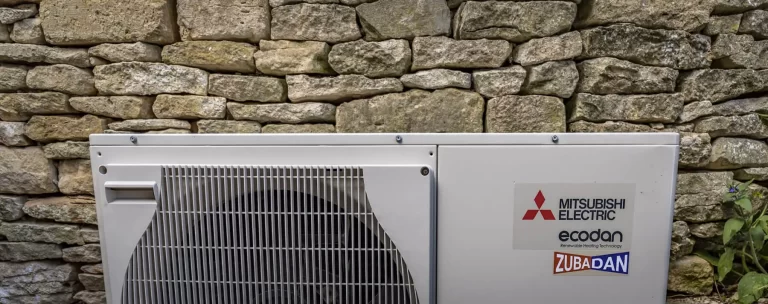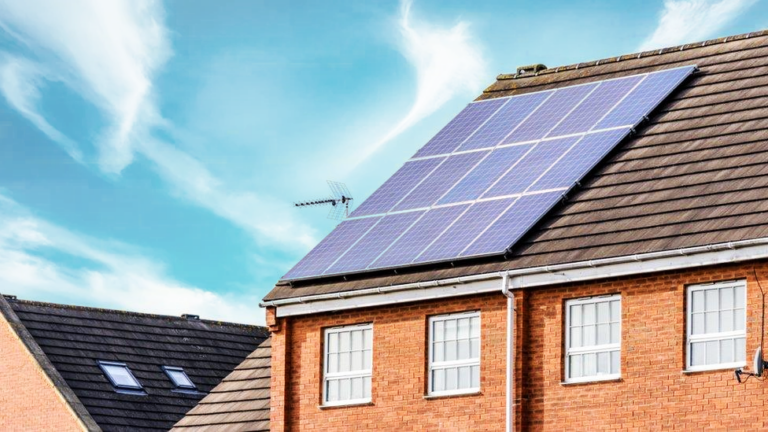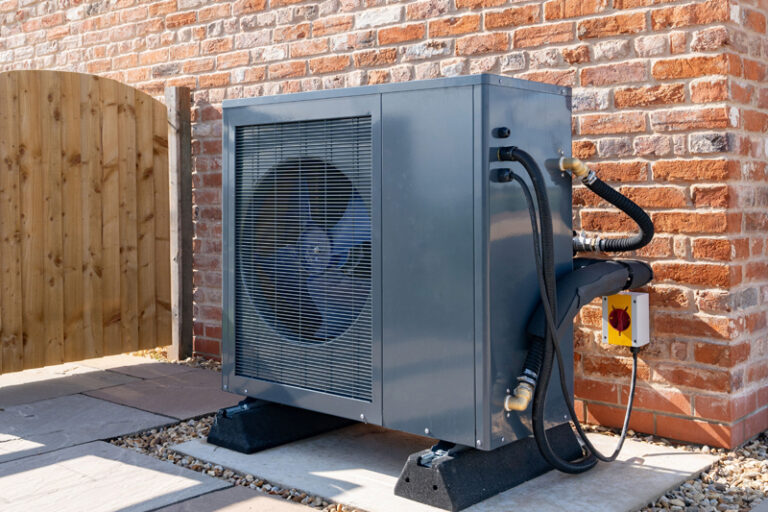Commercial air source heat pumps (ASHPs) are becoming more and more popular among businesses as owners look to reduce their carbon footprint and energy costs. If you’re not sure what heat pumps are, or how they could save you money, then this guide will walk you through the essentials of commercial air source heat pumps, helping you understand their benefits, operation, and why they might be the right choice for your business.
Understanding Commercial Air Source Heat Pumps
At their core, commercial air source heat pumps are systems that transfer heat from the outside air to inside a building (or vice versa) to provide heating, cooling, and hot water. Unlike traditional heating systems that generate heat through combustion, ASHPs simply move existing heat, which makes them incredibly efficient and environmentally friendly.
The basic principle behind an air source heat pump is simple yet effective. It absorbs heat from the outdoor air into a liquid refrigerant, which is then compressed to increase its temperature. The heated refrigerant is circulated through the building’s heating system, releasing the heat where needed. In warmer months, this process can be reversed to cool the building, making ASHPs an all-season solution.
Heat pumps are effective at transferring heat even when the weather outside is cold, as while it might not be apparent to us, there is still heat in the air at low temperatures. Your pump may be slightly less efficient when its colder, but you’ll still be able to heat your home and hot water to the same temperature as normal.
Supporting Business Environmental Goals with ASHPs
Since businesses are increasingly held accountable for their environmental impact, ASHPs can be a powerful tool to help them achieve these green objectives. The UK government has set ambitious targets for reducing carbon emissions, and businesses play a crucial role in meeting these goals. ASHPs, with their exceptional efficiency and reliance on renewable energy sources, offer a clear path forward.
Under the Climate Change Act 2008 (2050 Target Amendment) Order 2019, the UK government has set a target to reduce greenhouse gas emissions to net zero by 2050 compared to 1990 levels. It also introduced the Energy Savings Opportunity Scheme (ESOS), which means that large businesses in the UK are required to conduct energy audits every four years under the ESOS and are encouraged to identify cost-effective energy-saving measures.
What’s more, under the SECR framework, which came into effect in April 2019, large UK companies must report their energy use, carbon emissions, and energy efficiency actions in their annual reports. This framework aims to simplify carbon and energy reporting, encouraging transparency and incentivising the adoption of energy efficiency measures.
By adopting ASHPs, businesses can significantly reduce their reliance on fossil fuels, thereby lowering their carbon emissions. This not only helps in meeting regulatory requirements and environmental targets but also positions businesses as leaders in sustainability. In a market where consumers are more environmentally conscious than ever, demonstrating a commitment to green practices can enhance brand reputation and customer loyalty.
How Much Could an ASHP Reduce Your Carbon Footprint?
The exact amount of carbon reduction that a heat pump could bring to your business depends on several factors, including the size of your premises, your current heating system, and the type of heat pump installed. However, it’s not uncommon for businesses to see a substantial decrease in their carbon footprint when:
- Switching from Gas Boilers: If you’re moving from a conventional gas boiler to an air source heat pump, you could reduce your carbon emissions by about 60%. For a medium-sized business, this could equate to several tonnes of CO2 saved annually.
- Replacing Electric Heaters: The savings are even more significant if you’re transitioning from electric heaters to heat pumps. Given that heat pumps can be three to four times more efficient, the carbon savings could be in the region of 75% or more.
- Upgrading from Oil Heating Systems: Oil heating is less efficient and emits more CO2 compared to gas boilers. By switching to a heat pump, your business could see carbon emission reductions of up to 70% or more, depending on the efficiency of the heat pump system installed. This shift not only significantly lowers your carbon footprint but also reduces dependency on oil, a volatile and increasingly expensive fuel source.
For businesses able to invest in ground source heat pumps, the efficiency and carbon savings can be even higher, thanks to the stable temperatures underground.
The Cost of Commercial Air Source Heat Pumps
It’s understandable to be concerned about costs when committing to using a heat pump system for your business. This section covers all the initial costs involved with installation as well as highlighting what you may save in the long run.
What Does It Cost to Buy and Install?
The cost of getting an ASHP system up and running varies, usually between £6,000 and £18,000, but this range depends on a few things, including the size of your space and how much heating or cooling it needs. This will determine how big and powerful your ASHP should be, with larger systems typically costing more to install. Also, if you opt for a model with the latest features for better efficiency and performance, it might cost a bit more in the beginning, but you’ll stand to make greater savings further down the line.
Don’t forget, the installation process itself can affect the price, as depending on how your building is laid out, whether any extra work needs to be done to fit the system, and how it integrates with any existing heating systems you have, you could end up needing to pay a bit more.
It’s best to think of initial costs not just as a bill to pay but as an investment in your business’s future. A well-chosen ASHP can lead to lower energy bills and a smaller carbon footprint, which are good for both the planet and your bottom line. To make sure you’re choosing the right system and getting the most out of your investment, it’s a smart move to work with professionals who can assess your needs and help plan the installation, as this way, you’ll have a system that fits your business perfectly, saving you money and helping the environment for years to come.
How Much Will Running the System Cost?
Once your air source heat pump (ASHP) is installed, the next thing to consider is the cost of running it. ASHPs are known for their efficiency, which is a big advantage for businesses aiming to lower their energy expenses. These systems work by moving heat from the outside air into your building, a process that uses much less electricity than traditional heating methods that generate heat from electrical energy or by burning fossil fuels.
The efficiency of an ASHP is measured by its Coefficient of Performance (CoP), which shows how much heat is produced for every unit of electricity consumed. Commercial ASHPs typically have CoPs ranging from 2.5 to 4. This means they can produce up to four times the amount of heat per unit of electricity used, leading to direct savings on your electricity bills. Traditional gas boilers, on the other hand, are only around 90% efficient, meaning that for every unit of energy they consume, they produce only 0.9 units of heat.
However, the actual running costs of an ASHP can vary based on several factors:
- The size of the commercial space and the demand for heating and cooling.
- The energy efficiency of the specific ASHP model, with newer models usually being more efficient.
- Electricity prices, which can change based on market conditions and energy policies.
- Usage patterns, including how often the system is used and the temperatures you’re aiming for.
To optimise running costs, consider the following:
- Ensure your premises are well-insulated to make the ASHP work more efficiently.
- Use smart energy management systems to better control the ASHP’s operation.
- Regular maintenance is key to keeping the system running efficiently, preventing unnecessary energy use, and extending the unit’s lifespan.
What Savings Can Be Expected?
Businesses that switch to ASHPs can look forward to significant savings on their energy bills, mainly because these systems don’t rely on traditional fuels to operate. Research backs up the potential for these savings, showing that air source heat pumps can cut fuel costs by up to 53%. With ongoing advancements in technology and more efficient models hitting the market, the financial benefits of ASHPs are only set to increase. This makes them an increasingly attractive option for businesses aiming for sustainable heating solutions.
Buildings with good insulation see even greater benefits from ASHPs, as proper insulation enhances the pump’s performance, leading to even more significant savings on energy bills and a more substantial reduction in carbon footprint. This doesn’t mean that properties with poorer insulation can’t enjoy the advantages of ASHPs, but savings may not be at quite the same level as they are for those in optimal buildings.
What’s more, integrating ASHPs with other renewable energy sources, such as solar panels, can lead to additional savings and environmental benefits. By using solar panels to generate electricity that can power the ASHPs, businesses can further reduce their reliance on the grid and decrease their energy costs.
Are Commercial Air Source Heat Pumps Suitable for Your Business Premises?
Understanding if a commercial heat pump is right for your business premises hinges on several key factors:
- Age of the Building: Older buildings may not be as inherently efficient for heat pump installation due to their design and insulation standards. However, this doesn’t rule them out entirely, as with the right modifications, a heat pump could still be a viable option.
- Current Heating System: The feasibility of integrating an air source heat pump may depend on the existing heating infrastructure. In some cases, it’s possible to utilise the pipework from an old boiler system, which can ease the transition.
- Insulation Quality: The level of insulation in your property is crucial. Effective insulation ensures that the lower operating temperatures of heat pumps—typically around 50-55°C, compared to traditional boilers’ 65-80°C —still provide adequate heating without excessive energy use.
- Radiator Compatibility: Due to the lower heat output, existing radiators may need to be assessed for compatibility. Larger radiators or underfloor heating systems might be necessary to achieve the desired warmth, given the pump’s lower temperature range.
Commercial Air Source vs. Ground Source Heat Pumps: Which Are Right for You?
Choosing between air source and ground source heat pumps for commercial properties boils down to specific needs, budget, and site conditions. Air source heat pumps stand out for their ease of installation and lower initial costs, making them a go-to for businesses with limited space or those looking for a quick sustainability boost without extensive groundwork. They’re adaptable and can fit into various settings, offering a straightforward path to reducing energy consumption and carbon emissions.
A ground source heat pump (GSHP), while requiring a higher upfront investment and more space for installation, excels in efficiency and long-term savings. GSHPs are ideal for businesses with enough land and a commitment to achieving deep, long-lasting reductions in both operational costs and environmental impact. GSHPs are particularly suited to larger commercial spaces with high heating and cooling demands, promising a significant return on investment over time through reduced energy bills.
Find the Right Commercial Air Source Heat Pump For You
Exploring the right commercial air source heat pump tailored to your business’s specific needs can significantly impact your operational efficiency and sustainability efforts. With advancements in heat pump technology, finding a system that aligns with your environmental goals and budgetary constraints is more accessible than ever. For expert advice and a bespoke quote that fits your requirements, consider reaching out to our team here at Cotswold Energy – let us guide you to the perfect solution with the latest in heat pump technology.







